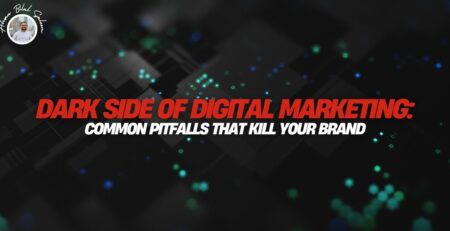Short-Term Gains, Long-Term Pain: The Risks Of Black Hat SEO
In the competitive world of digital marketing, the allure of quick results can be incredibly tempting. Black hat SEO, a collection of unethical practices designed to manipulate search engine rankings, often promises rapid gains. However, these short-term benefits come at a significant cost. This article delves into the techniques of black hat SEO, the risks involved, and why the long-term repercussions far outweigh any temporary successes.
What Is Black Hat SEO?
Black hat SEO refers to aggressive SEO strategies that violate search engine guidelines. These practices are aimed at deceiving search engines to gain higher rankings quickly. Common black hat techniques include:
- Keyword Stuffing: Overloading a webpage with keywords in an unnatural manner.
- Cloaking: Presenting different content to search engines than what is shown to users.
- Invisible Text: Using hidden text and links that are only visible to search engines.
- Link Schemes: Manipulating link-building processes through paid links, link farms, or reciprocal linking.
- Content Automation: Generating content using automated tools without regard for quality or relevance.
The Short-Term Gains
The primary appeal of black hat SEO is its ability to deliver quick results. These techniques can propel a website to the top of search engine results pages (SERPs) almost overnight. For businesses desperate for visibility, this surge in traffic can translate to an immediate boost in sales and brand exposure. In the short run, black hat SEO appears to be a magic bullet.
The Long-Term Pain
While black hat SEO might provide a temporary advantage, the long-term consequences are severe and often irreversible.
- Search Engine Penalties
Search engines like Google are constantly updating their algorithms to identify and penalize black hat practices. Websites caught using these tactics can suffer severe penalties, including drastic drops in rankings or complete removal from search engine indexes. Recovering from such penalties is time-consuming and costly, often requiring a complete overhaul of the website’s SEO strategy.
- Loss Of Credibility
Users are becoming increasingly savvy and can often recognize spammy, low-quality content. When visitors encounter keyword-stuffed pages or irrelevant links, they lose trust in the website. This loss of credibility can damage a brand’s reputation, making it difficult to regain customer trust even after the issues are corrected.
- Legal Repercussions
Some black hat SEO techniques, such as negative SEO (sabotaging competitors’ rankings), can lead to legal consequences. Engaging in such unethical practices not only risks penalties from search engines but also potential lawsuits and fines.
- Wasted Resources
The time and money invested in black hat SEO are ultimately wasted when penalties are imposed. Businesses may find themselves having to spend even more resources to recover from the damage, including hiring SEO experts to clean up the mess and implement sustainable, white hat SEO strategies.
- Unsustainable Success
The success achieved through black hat SEO is often fleeting. Search engines continually evolve, and what works today may be obsolete tomorrow. Sustainable, long-term success in digital marketing relies on ethical practices that adapt to algorithm changes and focus on providing genuine value to users.
The Path To Sustainable SEO
The risks associated with black hat SEO far outweigh the short-lived benefits. Instead, businesses should invest in white hat SEO techniques, which prioritize ethical practices and long-term growth. These include:
- Quality Content Creation: Producing valuable, relevant content that addresses the needs and interests of the target audience.
- Natural Link Building: Earning backlinks through genuine relationships and high-quality content rather than manipulative schemes.
- User Experience Optimization: Ensuring the website is user-friendly, fast, and accessible on all devices.
- Regular Updates: Keeping content fresh and up-to-date with the latest information and trends in the industry.
- Adhering to Guidelines: Following search engine guidelines and best practices to avoid penalties and maintain a positive online presence.
Conclusion
The pursuit of quick wins through black hat SEO may seem enticing, but it is a perilous path fraught with risks. Businesses that engage in these practices face significant long-term pain, from search engine penalties to loss of credibility and legal troubles. By focusing on sustainable, ethical SEO strategies, companies can achieve lasting success and build a trustworthy online presence that stands the test of time.










